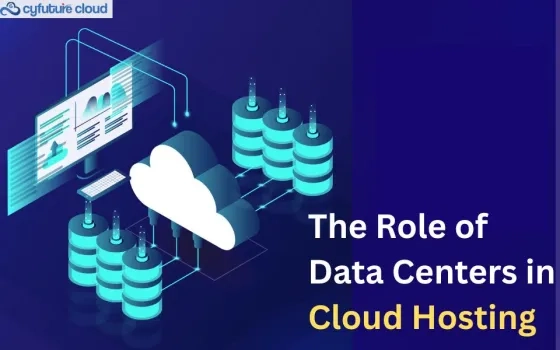Many businesses prefer the flexibility and ease of cloud computing over traditional local hosting and on-premise software when it comes to data processing, storage, and collaboration.
Instead of storing data and apps on a hard disc, cloud computing allows you to access and save them online. You're employing cloud computing if your business employs online CRM software to manage sales, Dropbox or Google Drive for file storage, Slack for inter-team messaging, or Google Docs for editing and document collaboration.
Small businesses can gain a lot from working in the cloud, such as improved collaboration, simple access, and quick response times. We'll look at cloud computing, how it works, and the benefits that it has for small businesses.
The term "cloud computing" refers to the on-demand distribution of a variety of computing resources over remote networks. It eliminates the need to run and manage real hardware on-site, letting organisations to work more flexibly and easily scale up their infrastructure.
What Does "Cloud Computing" Mean?
It is the cloud. This unknown place appears to be the home of all of our data. Some individuals are terrified of it, while others are unable to comprehend it. But in reality, what exactly is "the cloud"? To put it another way, cloud computing is a system that allows for the remote hosting and storage of files, as well as the execution of programs on third-party hardware through the use of the internet.
Instead of storing your files on your own personal computer or mobile device, these files are stored in enormous data centers that you may access at any time and from any location in the world.
The application of this principle has even expanded to more recent concepts, such as cloud-based gaming, which involves the use of third-party cloud servers and computers to transmit gaming capabilities to your computer through the use of the internet. It's incredible, isn't it?
But for this essay, we are going to concentrate on cloud technology as it relates to small enterprises. This is because cloud computing has fundamentally altered how we conduct business.
Now, you might be questioning why you should make the switch to the cloud when your personal computers from the middle of 2010 and your simple tiny servers in the office have been functioning perfectly up until this point. There is no need to be concerned because I have outlined seven different advantages of cloud computing that you should take into consideration for your small business.
A leap into the future is something that needs to be taken now!
What is Cloud Computing Used For?
Cloud computing is integral to modern business operations, offering versatile applications. It's used for secure data storage, hosting servers for websites and applications, and processing large-scale data analytics. Additionally, it supports remote collaboration through various tools and plays a crucial role in disaster recovery and data backup. Importantly, it enables access to diverse software applications via Software as a Service (SaaS), enhancing business efficiency and reducing costs.
Cloud computing has revolutionized how businesses operate, offering a range of services that cater to various needs. Here are some key uses of cloud computing:
- Data Storage: Securely storing vast amounts of data.
- Server Hosting: Running websites and applications.
- Data Analysis: Processing and analyzing big data.
- Collaboration Tools: Facilitating remote teamwork.
- Disaster Recovery: Ensuring data backup and quick recovery.
- Software as a Service (SaaS): Accessing software applications online.
Types of Cloud Services for Businesses
Aside from SaaS, other popular cloud computing services include Infrastructure as a Service (IaaS) and Platform as a Service (PaaS).
IaaS (Infrastructure as a Service)
IaaS replaces all of the physical hardware that was previously necessary for IT infrastructure with virtual services. This enables firms to simplify how they handle various workload requirements by utilising a variety of configurations. Amazon Web Services and Microsoft Azure are the two most popular IaaS providers.
PaaS (Platform as a Service)
PaaS, like IaaS, provides virtual infrastructure as part of a larger cloud-based development environment for developing, deploying, and maintaining web applications. Development tools, database management systems, middleware, and business intelligence (BI) tools are also included.
Top 7 Benefits of Cloud Computing for Small Businesses
1. Cost Efficiency
Cloud computing, especially in the realm of cloud computing in financial services, is a boon for small businesses in terms of cost savings. It eliminates the need for large capital expenditures on hardware and software, reducing the financial burden on these companies.
The pay-as-you-go model ensures that businesses only pay for the computing resources they use, which can lead to significant cost reductions. Additionally, it cuts down on the costs associated with data storage, IT workforce, and energy consumption, as maintaining large data centers on-site can be expensive. According to Rackspace, businesses save an average of 15% on IT costs by migrating to the cloud.
2. Scalability
Scalability is a critical advantage of cloud computing. It allows small businesses to quickly and easily add or reduce resources based on their current needs. This flexibility is particularly important for businesses experiencing fluctuating or unpredictable demands. They can scale up during peak times or scale down during slower periods without the hassle of purchasing and installing physical infrastructure. RightScale's survey highlights that 90% of businesses have seen improvements in scalability due to cloud computing, illustrating its impact on business agility.
3. Accessibility and Mobility
With cloud computing, employees can access files and systems anywhere, anytime, as long as they have internet access. This enhances flexibility and fosters a better work-life balance. Small businesses benefit from this mobility, as it allows for remote work, which can lead to increased employee satisfaction and productivity. Forbes found that 55% of businesses saw increased collaboration and productivity thanks to the mobility offered by cloud computing.
4. Data Security
Cloud providers are typically more capable of securing data than small businesses with limited IT resources. They use advanced security measures like encryption, intrusion detection, and multi-factor authentication to protect data. This level of security is often more robust than what a small business could afford to implement on its own. RapidScale's report indicates that 94% of businesses noticed an improvement in security after shifting to the cloud, highlighting its effectiveness in protecting sensitive data.
5. Disaster Recovery
Cloud computing offers efficient and quick disaster recovery solutions. Data stored in the cloud is replicated across various locations, which means it can be easily retrieved in the event of hardware failure, natural disaster, or cyber attack. This capability is vital for business continuity and reduces the downtime and losses associated with data loss incidents. Aberdeen Group's survey shows that small businesses using cloud services can resolve issues almost four times faster than those not using the cloud.
6. Automatic Updates
The cloud handles software updates automatically, ensuring that businesses are always using the latest, most secure software versions. This takes the burden of system maintenance off the shoulders of small business owners, allowing them to focus on their core business activities. It also reduces the risk of security vulnerabilities associated with outdated software.
7. Competitive Advantage
Cloud computing levels the playing field for small businesses. It gives them access to sophisticated technology that was previously only available to large corporations with substantial IT budgets. By using cloud services, small businesses can operate more efficiently and react more quickly to market changes, giving them a competitive edge. Dell's study shows that cloud technology can significantly accelerate revenue growth, demonstrating its impact on business competitiveness.
8. Environmentally Friendly
By reducing the need for physical servers and data centers, cloud computing is more environmentally sustainable than traditional computing. It reduces energy consumption and carbon emissions, contributing to a greener planet. This environmental responsibility can also be a selling point for businesses, appealing to eco-conscious consumers.
9. Improved Collaboration
Cloud computing fosters collaboration by allowing multiple people to access and edit documents in real time, no matter where they are located. This facilitates teamwork and speeds up project completion. Frost & Sullivan's study reveals a substantial return on investment for companies that adopt collaborative cloud technologies, emphasizing the value of enhanced collaboration.
10. Focus on Business
With cloud computing, small business owners can concentrate on growing their business without worrying about IT infrastructure. Cloud services handle IT-related tasks like data storage, system updates, and security. This allows business owners and their teams to devote more time and energy to developing new products, improving customer service, and expanding their market reach.
Cloud computing offers small businesses a range of benefits, from cost savings and scalability to improved security and collaboration. These advantages not only help streamline business operations but also contribute to long-term growth and success in a competitive marketplace.
To make the most of cloud computing for your business, get in touch with Aeologic Technologies. We'll help you step into a world of new possibilities and growth.














